It has become something of a critical cliché to end a review or an essay with a phrase such as “…and find out something about what it means to be human”. The elevation of this simple characterisation of a piece’s themes and ideas into a full-blown cliché is partly a reflection of its over-use by unimaginative critics and partly a reflection of the sheer number of works of art that attempt to engage with issues of personal identity. Indeed, the crisis of identity is perhaps the central recurring theme behind all of modern literature. However, despite all of the books, films and plays devoted to excavating conceptions of the self, surprisingly little headway has been made. We are still alienated from our deepest desires. We are still trapped between the need to be social creatures and the desire to be true to ourselves. We are still fundamentally estranged from each other’s subjectivities.
In fact, art’s lack of progress has been so complete that one might well be tempted to conclude that art — whether it be literary, dramatic, cinematic or figurative — simply lacks the capacity to generate the kind of robust truths that stand up to close intellectual scrutiny. After all, if one does not turn to interpretative dance when one wants to discern the nature of a neutron star, why should we turn to poetry when we want to discover who we are?
Pulitzer Prize-winning novelist Marilynne Robinson’s extended essay Absence of Mind – The Dispelling of Inwardness From The Modern Myth of The Self is an attempt to address this very question. Robinson feels that the rise and rise of scientific conceptions of the self have resulted in a general impoverishment of discourse surrounding human nature. An impoverishment that has left us alienated not only from the many ancient and richly metaphysical traditions embodied by the arts, philosophy, and religion, but also from ourselves and our willingness to trust our own insights into who we are and what we want.
Unfortunately, rather than clearly defenestrating these shrunken visions of humanity and providing a sustained and rigorous argument in favour of a richly metaphysical conception of the self, Robinson provides us with a one hundred and thirty page-long howl of entitlement. Robinson is sloppy in her choice of targets, meretricious in her engagement with science and vacuous in her proclamations. Absence of Mind is a book that fizzles with anger at the idea that scientists refuse to take Robinson’s private intuitions into account when formulating their theories but when the time comes for Robinson to articulate a reason — any reason — as to why they should, she remains oddly silent. Absence of Mind is a book written with little insight and with little to say.
Let us begin with a statement of the problem.
Suppose you attend Sea World or a similar attraction with performing wildlife. You are sat a few rows behind a couple with a young child. The trainer throws a fish into the air and a dolphin somersaults out of the water and catches it in mid-air. It is a spectacular trick and the crowd roar their approval. As the clapping quietens down, you hear the father of the young child saying to his offspring “that is one smart fish!”. If you are like me then this thought alone might well make you cringe. You might even feel tempted to stand up and shout out “it’s a mammal you pillock! Dolphins aren’t fish!”. You would, of course, be correct to make that claim, but is the child’s father necessarily wrong? Fish are things with tails that swim underwater… what’s the problem?
The problem is that the connection between scientific language and the amalgam of idiolects and regional dialects that compose the English language is far from perfect. ‘Fish’ has a very precise scientific meaning and while that meaning has broadly ported across into general discourse, there is still a sense that ‘fish’ probably applies to dolphins, and if not ‘fish’ then certainly ‘fishy’. Language is such that the meaning of words is determined largely through use because words are arbitrary collections of symbols and sounds that bear no inherent connection to the objects they refer to other than those determined by convention. However, scientific language is different in that scientific discourse requires that meanings be fixed with a greater degree of rigour. The more scientific language and scientific thought filters out of the sciences, the more scientific theory comes to serve as a kind of semantic anchor whereby dolphins cease to be fish.
This process of linguistic narrowing also applies to discourse surrounding not only human nature but also the mind and the self. When we talk about ourselves, we no longer speak in terms of angels on our shoulders or affecting humours but, increasingly, in terms borrowed from psychoanalysis, psychology and evolutionary psychology. Our films, TV series and novels feature characters who are ‘in denial’ and ‘projecting’ while our newspapers are filled with attempts to account for some perceived gender difference in terms of our evolutionary history. When we want to learn about the self we turn not to the Bible or to the Aeneid but to books such as Stephen Pinker’s The Blank Slate (2002) or E. O. Wilson’s On Human Nature (1978).
For some thinkers, this generational process of linguistic mutation is not fast enough. Indeed, Gilbert Ryle’s The Concept of Mind (1949) and Paul Churchland’s article ‘Folk Psychology’ (1998) both make very strong cases for the complete inadequacy of our current ways of thinking and talking about ourselves; the collection of tools, assumptions and theories referred to by philosophers as Folk Psychology. Where Ryle wanted to replace all talk of souls and selves with language derived from behaviourist conceptions of the self, Churchland wanted to replace folk psychology with a psychology informed by neuroscience. As Churchland himself puts it :
our commonsense conception of psychological phenomena constitutes a radically false theory, a theory so fundamentally defective that both the principles and the ontology of that theory will eventually be displaced, rather than smoothly reduced, by completed neuroscience. Our mutual understanding and even our introspection may then be reconstituted within the conceptual framework of completed neuroscience, a theory we may expect to be more powerful by far than the commonsense psychology it displaces, and more substantially integrated within physical science generally.
While there is little evidence to support the view that either neuroscience or behaviourism are colonising our collective sense of self, there is some evidence to support the view that psychoanalysis is on the way out. Indeed, having drifted into our discourses surrounding the self, psychoanalysis has now drifted out of the field of psychology, out of the field of philosophy and into the field of literature where it hangs onto the tattered remains of its academic respectability with cracking and fraying fingernails. For a fascinating insight into this process, I warmly recommend Robert Pogue Harrison’s 29 of May 2007 podcast discussion with Charitini Douvaldzi on Freud and suggest you note the desperate and forlorn attempts at insisting that psychoanalysis retains some objective truth, as well as the perverse and frankly contradictory attitude towards scientific evidence resulting from Harrison and Charitini’s intellectual contortions (if science says Freud was wrong then science is wrong… except, of course, when science says Freud was right). Absence of Mind is suffused with a similar sense of forlorn longing except, instead of pining after the language of psychoanalysis, Robinson pines after the metaphysically rich language of religion, art and philosophy.
Yet, even as our capacity to describe the fabric of reality and the dimensions of it has undergone an astonishing deepening and expansion, we have turned away from the ancient intuition that we are a part of it all. What such a recognition might imply, if it were attempted on the basis of the present knowledge, it is difficult to say, but the strange ways of quarks and photons might enlarge our sense of the mysterious nature of our own existence. The pull of reductionism might be balanced by a countervailing force. — pp. xiv
I propose that the core assumption that remains unchallenged and unquestioned through all the variations within the diverse traditions of “modern” thought is that the experience and testimony of the individual mind is to be explained away, excluded from consideration when any rational account is made of the nature of human being and of being altogether. In its place we have the grand projects of generalization, solemn efforts to tell our species what we are and what we are not — pp. 22
Subjectivity is the ancient haunt of piety and reverence and long, long thoughts. And the literatures that would dispel such things refuse to acknowledge subjectivity, perhaps because inability has evolved into principle and method — pp. 35
There is no denying that Robinson is on to something. Philosophers of psychology such as Gilbert Ryle, P.M. Churchland and Thomas Metzinger — as well as the popular science writers who follow in their wake — suggest severing our cultural connections not only with traditional theories of the self but also all of the linguistic infrastructure that has grown up surrounding humanity’s attempts to talk about themselves. This semantic eschaton would involve not only banishing a collection of loftily involved abstract theories but also many of the basic building blocks of language itself. To ditch folk psychology means also ditching talk of beliefs, desires, thoughts and even the first person pronoun. Obviously, not all psychologists and neuroscientists take such a draconian line as these eliminativist philosophers but the evolution of our folk psychological models is such that the ideas that Robinson favours may well soon find themselves as alien to our modes of self-conception as the thoughts and theories of the scholastics or prehistoric mystics. Indeed, Robinson is not alone in her concerns as many continental philosophers have reacted violently against any attempt to move away from traditional mental language by embracing what Husserl refers to in Ideas Pertaining to a Pure Phenomenology and to a Phenomenological Philosophy, First Book (1982) as the Principle of Principles :
No conceivable theory could make us err with respect to the principle of principles: that every originary presentive intuition is a legitimizing source of cognition, that everything originally (so to speak in its personal actuality) offered to us in intuition is to be accepted simply as what it is presented as being, but also only within the limits in which it is presented there. — pp. 44
Robinson’s repeated appeals to intuitive evidence displays a similar sentiment: The language of folk psychology and the intuitions that underpin it are inviolable because the intuitions that the self generates about itself are also inviolable. We have privileged access to the workings of the self and because modern scientific thought does not factor these intuitions in, it is violating the Principle of Principles.
Indeed, Ray Brassier argues in his excellent Nihil Unbound (2007) that the Principle of Principles maintains such a hold over continental thought that many thinkers now believe that it is the job of philosophy not to describe the self but to describe ‘what it is like to be a self’ and because the analytical language can never be allowed to pierce the veneer of our intuitions and the subjective appearances supporting them, such studies must be carried out not in the language of science or philosophy but of literature. This not only explains the intimate connection between continental philosophy and literary criticism but also the relative obtuseness of the sort of philosophical writing so roundly mocked by Alain Sokal as a part of the now infamous Sokal Affair of 1996 when an American physicist managed to get an article full of meaningless sentences and scientific falsehoods published in a leading academic journal.
Unfortunately, while there are a number of well-thought out defences of the Principle of Principles, Absence of Mind does not feature any of them. In fact, the book contains no arguments whatsoever for the inviolability of the self. One suspects that this omission is due to the fact that the language of the self used by religion clearly does violate the Principle of Principles. It is one thing to suspect that we have a self and that the self is an inviolable object that acts very much like a soul, but it is quite another to speculate as to what might happen to that self after the death of the body. Indeed, the Principle of Principles leads to a form of linguistic reductionism no less demanding than that of contemporary science, it is just that the demands it makes are of a different character. The Principle of Principles may well exclude eliminativist speculation about the neurological goings on behind consciousness, but it equally excludes metaphysical speculation about what happens to the self after death.
However, even if we set the Principle of Principles to one side, Absence of Mind is still depressingly thin on substantial argument. In fact, the book never actually presents a case for the inclusion of intuition as a form of reliable evidence. Instead, Absence of Mind limits itself to stating and re-stating the same grievance whilst attempting to refute the arguments against its inclusion but, because Absence of Mind does not really engage with the philosophy of psychology or cognitive neuroscience, the book is limited to a game of poorly choreographed shadow-boxing waged against a somewhat ill-defined opposition as it is never completely clear either who it is that Robinson is arguing against or why it is they are wrong.
The bulk of the book’s attempt to refute the scientific image of the self is contained in two central chapters.
The first entitled “The Strange History of Altruism” takes issue with attempts by evolutionary psychologists to account for apparently altruistic and selfless behaviour in selfish terms.
I should declare at the outset my own bias. I believe it is only prudent to make a very high estimate of human nature, first of all in order to contain the worst impulses of human nature, and then to liberate its best impulses. — pp. 32
Unfortunately, the base conception of humanity that so enrages Robinson is not universally adhered to by evolutionary psychologists and so Absence of Mind flits back and forth between a number of subtly different points of view without ever managing to pin down either a coherent viewpoint to argue against or any particular pieces of flawed reasoning. In short, it is not immediately clear either which view of human nature Robinson is arguing explicitly against, or who it is precisely that holds it.
Early in the chapter, Robinson attempts to draw a distinction between the viewpoint she is arguing against and legitimate scientific thought. On the one hand we have the likes of E. O. Wilson, Stephen Pinker and Thomas Huxley who paint an ugly and selfish image of human nature, and on the other we have the likes of William James whose accounts of subjectivity and experience use
language that accords itself uncannily well with the idea of indeterminacy in modern physics — pp. 54
These sorts of unrefined, unjustified and frequently puzzling appeals to scientific authority pass through the book like a dose of salts. A few pages after praising James for pre-empting quantum physics, Robinson takes E. O. Wilson to task for appealing to Heisenberg’s Uncertainty Principle without explaining either what appeal he made or why he was wrong to make it. Elsewhere, Dark Matter is invoked as proof that there is more to the universe than that which is observable while Einstein’s Gravitational Constant and Quantum Entanglement are cited as examples of science getting it wrong.
In order to establish that popular science writers are getting wrong, Absence of Mind needed first to establish what it is that popular science writers are doing and then demonstrate the ways in which these views differ from current scientific thought. Unfortunately, Absence of Mind never quite manages to pin down a single view that could be ascribed to popular science writers (which is fair enough as I doubt very much that they all agree with each other) and instead of using cognitive science to refute these views, the book combines naïve and ill-informed appeals to quantum physics with a series of confused and confusing a priori arguments that fail to distinguish between the claim “all humans are selfish” and the attempt to explain human behaviour in terms of the (selfish) gene’s-eye-view.
The result is the unshakable impression that, while Robinson does not fully understand the visions of the self put forward by evolutionary psychology, she knows them to be not only wrong but also profoundly unscientific. Sadly, the quality of argument does not improve when the book moves on to psychoanalysis.
Initially the chapter entitled “The Freudian Self” finds Absence of Mind on much steadier ground. Latching onto Freud’s vision of the self as a fragile entity harmed by a hostile world, the book successfully argues that Freud’s thinking should best be understood as a reaction to the waves of German Nationalism and anti-Semitic sentiment that was battering against the sphere of Viennese public discourse at the time Freud was writing.
If they are intended, as I believe they are, to counter a dominant strain of thought, one that incorporated philosophy, psychology, anthropology, biology, and linguistics to produce and confirm and ideology of racial nationalism, then Freud can be seen as offering another framework of understanding that excludes race and nation as essential elements of human nature. — pp. 88
Thinkers such as Oswald Spengler attempted to place blood at the centre of discourses of the self. They not only invoked the passions but sought to elevate them above logos at the centre of the human condition. According to Robinson, Freud’s theories are best understood as a reaction against this current in that they attempt to place the passions under the auspices of scientific investigation. Indeed, for Freud, the rational mind is ruled by the passions but the passions can be understood using the sort of scientific detachment made possible only by the tools of psychoanalysis. This game of intellectual king-of-the-hill resulted in humanity becoming alienated from itself as cultural discourse about the self placed contemplative intuition first under the control of the passions and then under the control of rational but subjectively inaccessible psychological principles. The self could no longer be trusted.
Absence of Mind presents a fascinating case for interpreting Freud in terms of the cultural context he was operating in. However, the book rapidly runs into difficulties when it attempts to progress from this claim to the much stronger claim that because our current cultural context is different to the one Freud was operating in, we should be sceptical as to the value of his theories. There are many reasons for rejecting psychoanalytical theory but the fact that we are not living amidst a rising tide of German Nationalism is certainly not one of them. However, though a weak (and entirely undeveloped) line of argument, this claim for the fitfulness of a theory of the self to its time does present us with an interesting insight into Robinson’s thinking.
Absence of Mind’s frequent appeals to scientific authority suggests an acceptance of the idea that science currently holds the high ground when it comes to psychological analysis. Indeed, science has become the gold standard for truth claims. Scientific Truth lights our streets. Scientific Truth keeps planes in the sky. Scientific Truth cures us when we are sick. Religion and literature do none of these things. And yet, we are reluctant to admit that religion and literature are uttering falsehoods or making statements that are, strictly speaking, meaningless. In order to justify a belief in the sort of theories generated by religion or literature, it would therefore be necessary to place the theories of religion and literature on a scientific footing and Absence of Mind’s attempts to rehabilitate intuition as a source of evidence is an attempt to do exactly this.
However, as the lack of substantial argument in Absence of Mind suggests, Robinson’s faith in intuition as a source of evidence for a more generous conception of human nature is grounded not in rational argument or in scientific evidence but rather a form of truncated aesthetic sensibility. Robinson re-states her position over and over again in remarkably elegant language because she holds it to be true. How can science ignore the evidence when the evidence yields such profound and moving truths?
If I were not myself a religious person, but wished to make an account of religion, I would believe I would tend toward the Feuerbachian view that religion is a human projection of humanity’s conceptions of beauty, goodness, power, and other valued things, a humanizing of experience by understanding it as structured around and mirroring back these values. Then it would resemble art, with which it is strongly associated. But this would dignify religion and characterize the mind as outwardly and imaginatively engaged with the world, as, in parascientific thought after Comte, it never is. — pp. 127
Robinson is effectively trapped in a Catch-22 situation: she refuses to relinquish her claim upon our culture’s intellectual high-ground, but nor does she want to pay the price that accompanies access to that higher ground – namely surrendering what one wants to be true in favour of what can be rigorously demonstrated to be worth believing in. As a result, Absence of Mind flirts unconvincingly with the idea that science is not the problem (thereby allowing for the possibility that intuition may work as scientific evidence), before collapsing into a childish piece of speculation according to which, somehow, Robinson turns out to be not only right but scientific too…
If my metaphor only suggests the possibility that our species is more than an optimized ape, that something terrible and glorious befell us, a change gradualism could not predict — if this is merely another fable, it might at least encourage an imagination of humankind large enough to acknowledge some small fragment of the mystery we are. — pp. 135
Absence of Mind is a work that radiates both a sense of profound injustice and a stubborn refusal to realise that, as far as uncovering the truth about the world is concerned, intuition and common sense cannot hope to compete with sustained scientific analysis and experimentation. Reading the book one feels an overwhelming sense of pity at the sight of an intelligent and educated woman trapped in the throws of profound cognitive dissonance. A sense of cognitive dissonance that could be so easily avoided if only Robinson would relinquish her claim to the higher ground of objective truth.
The battle for our culture’s intellectual higher ground is neatly characterised by George H. Smith in his Atheism: The Case Against God (1979). In a devastating attack upon theistic attempts at undermining reason as a mode of cognition, Smith invokes the concept of Spheres of Influence :
The conflict between reason and faith may be viewed as a struggle to control spheres of influence. Since reason and faith cannot simultaneously reside over any given sphere, the dominance of one requires the exclusion of the other. Once we see that a sphere for faith can be manufactured only at the expense of reason, we can appreciate why the “unknowable” is a central tenet of theism and why Christianity has found it necessary to declare war on reason — pp. 125
Though this passage comes from a popular work of philosophy written over thirty years ago, it is possible to see the relationship between the argumentative moves ascribed to theism by Smith and the moves made by Robinson in Absence of Mind. Robinson wishes her vision of human nature and the self to retain a degree of intellectual respectability and yet she realises that that vision is no longer compatible with the theories generated using rational modes of inquiry, thereby prompting her to claim that intuition — a mode of inquiry that does support her view of human nature — is in fact rational and unfairly excluded as such by the dogmatic and unscientific popular science writers who act as gate-keepers to the scientific public sphere. However, by claiming a degree of kinship between the theories generated by religion and those generated by art and metaphysically-inclined philosophy, Robinson is inching her way towards a second, increasingly popular method of dealing with reason’s encroachment upon areas that were once under the influence of faith. I am referring, of course, to the creation of auxiliary intellectual realms.
In an essay originally published in 1997 and reprinted in his book Rock of Ages (1999), the paleontologist Stephen Jay Gould proposed a solution to the conflict between science and religion in the form of Non-Overlapping Magisteria or NOMA: The NOMA of science deals with the empirical realm, namely what the universe is like and why it works the way that it does. Meanwhile, the NOMA of religion deals with issues of morality and the ultimate meaning of life. These two NOMA do not overlap and by restricting their claims to their respective spheres of influence, science and religion could well happily co-exist, each requiring their own forms of cognition with their own intellectual values and priorities flowing from those modes of cognition.
In effect, this strategy solves the problem of conflicted spheres of influence by claiming that religion and science never operated in the same sphere to begin with. The two spheres touch each other and ideas can pass freely between the two areas cross-fertilising each other in all kind of different ways but, in principle, both science and religion can claim to dominate the cultural higher ground. Indeed, Karen Armstrong argued in her book The Great Transformation: The Beginning of Our Religious Traditions (2006) that organised religion’s attempts to colonise the factual realm is in some way a distortion of the mode of cognition innate to the spiritual mode of thought that developed in what Armstrong calls the Axial Age. Thinkers of the Axial Age were pragmatic and fluid in their assumptions and theories, rather than being tied to a particular vision of the world, these sages emphasised the importance of personal enlightenment and universal empathy. These sages described a better way of living one’s life, they did not describe the nature of the world.
Intriguingly, this strategic withdrawal from the physical and causal world also crops up in the social sciences where a tension between the positivistic desire to be rigorous and not speculate without appropriate evidence has clashed with the desire to draw attention to areas of the world that have long gone un-noticed by governments and researchers. Indeed, in their excellent book on the methodologies of International Relations Explaining and Understanding International Relations (1990), Martin Hollis and Steve Smith draw a distinction between explanation and understanding based upon the Weberian concepts of Erklaren (causal explanation as seen in the physical sciences) and Verstehen (attempting to understand the subjective meanings ascribed to actions by people).
The social sciences thrive on two intellectual traditions. One is founded on the triumphant rise of natural science since the sixteenth century. The other is rooted in nineteenth-century ideas of history and the writing of history from the inside. This book is guided by our belief that both traditions are fertile for the study of international relations, despite a lively tension between them. In international affairs, and throughout the social world, there are two sorts of story to tell and a range of theories to go with each. One story is an outsider’s, told in the manner of a natural scientist seeking to explain the workings of nature and treating the human realm as a part of nature. The other is an insider’s, told so as to make us understand what events mean, in a sense distinct from any meaning found in unearthing the laws of nature. — pp. 1
Understanding is anchored not in the world of facts, but the imperium of opinion. It is ductile, contingent, fluid and self-perpetuating because that is the nature of its subject matter. To understand someone is to come to grips with a worldview that will be full of gaps, logical inconsistencies, absurdities and emotionally buttressed axioms. The world may well be a logical place animated by concrete physical laws but this does not mean that our understanding of it needs to be as well.
Though Absence of Mind attempts to form an alliance between the theories of organised religion and those put forward by novelists and poets as well as metaphyically-minded philosophers and mystics, the truth is that there are as many different understandings of the world as there are individuals. We construct our own meanings and in so doing we construct our own understandings.
A fantastic example of the process of understanding is offered by Nicholas Ruddick’s The Fire in the Stone: Prehistoric Fiction from Charles Darwin to Jean M. Auel (2009). Ruddick considers the history of the genre of speculative fiction known as prehistoric fiction (PF) and detects a tendency by PF authors to dehumanise early humans on the basis of their possession of certain traits deemed undesirable by contemporary culture. Ruddick’s chief examples of this process of dehumanisation are Jules Verne’s attempt to present ancient humans as unrelated to the species created by God to live in the garden of eden and H. G. Wells’ claim that had the Neanderthals not died out it would have been necessary for Homo sapiens to wipe them out. Verne dehumanises his early humans in order to maintain a belief in Genesis that would otherwise be falsified by the discovery of ancient human remains while Wells dehumanises the Neanderthals in an attempt to distance human nature from the perceived ferocity and brutality of the Neanderthal character. As Ruddick demonstrates, the PF works of Verne and Wells constitute a blurring of the line between science and literature as authors frame the scientific facts on the basis of their cultural understandings and values.
Ruddick contrasts the process of dehumanisation with the process of Hominization whereby proto-human species are framed in such a way as to make them worthy of human empathy. Indeed, by seeking to establish a sense of kinship between the readers and these proto-humans, Hominizing works such as William Golding’s The Inheritors (1955) and Jean M. Auel’s The Clan of the Cave Bear (1980) construct a fictional history stretching from pre-historic times to the modern day. When Golding has the peaceful, empathetic and profoundly environmentally sound Neanderthals wiped out by the cunning and cruel Homo Sapiens, he is reminding us that well-meaning liberals will always be in danger from the sociopathic cunning inherent in human nature. Those of us who do care about each other and about the environment are in a minority. We are the oppressed. We are the losers.
Hominization functions like a form of post-modern whig history. It allows the construction of self-serving and self-justifying creation myths that never need to bend the knee to anything as mundane as the facts about history or human nature. Hominization is part of the process through which we come to understand ourselves by constructing not only our current identities but also the historical precedents for that identity. Through Hominization and its related processes, role-models are sought out and when they cannot be found in the facts of history they are made out of whole cloth. We can see this process of self-construction in such new age belief systems as the Otherkin (people who identify themselves with non-human races drawn from the Science Fiction, Fantasy and Horror canons) and we can see it in mainstream religion.
Karen Armstrong’s book A History of God (1993) charts the evolution of the concept of the Christian God from its earliest precursors amidst Babylonian myth through to its post-Nietzschean undeath. Along the way, Armstrong discusses the ways in which the concept of God would change in the wake not only of intellectual fashions but also political wrangles in and outside of the Christian Church. In the chapter on the Trinity, Armstrong discusses the infamous synod of Nicaea in dramatic terms:
Nevertheless, Athanasius managed to impose his theology on the delegates and, with the Emperor breathing down their necks, only Arius and two of his brave companions refused to sign his Creed. This made creation ex nihilo an official Christian doctrine for the first time, insisting that Christ was no mere creature or aeon. The Creator and Redeemer were one. — pp. 130
The hermeneutic techniques used by theologians to sift through holy texts in order to support one view or another of the Christian faith is a process akin to Ruddick’s Hominization. Christians of particular political and philosophical views look back to their holy scriptures and interpret the texts in such a way as to construct a bedrock for their current beliefs. Just like William Golding and the Otherkin, they are searching for a meaning in the present by creating a fictional past. A past that allows a simple and comprehensible line to be drawn through history to the values of the present. A line that allows people to demonstrate that they are not merely different or contrary, they are part of an ancient and richly metaphysical tradition stretching back to ancient times.
This sense of kinship with a long dead past has echoes in the sociological phenomenon referred to by Max Weber in The Protestant Ethic and the Spirit of Capitalism (1904) as the ‘Dis-enchantment of the World’. Weber locates this event in the Reformation’s shift away from the baroque universe of Catholicism — filled with Saints, Devils and sundry Hells — towards the much more parsimonious ontology of protestantism in which Man stands before God without a mystically imbued Church between them. The rise of protestantism, Enlightenment thinking and bureaucratic modes of governance are said to have stripped the world of its magical elements, driving the gods from the stage and replacing them only with human artifice and the relentless blind necessity of physical law. Indeed, this idea of the passing of an age underpins John Crowley’s Aegypt cycle, one of the finest works of fantastical literature to appear in the last thirty years. However, anyone who has read any Scholastic philosophy or early natural philosophy will be able to tell you that if the world was ever enchanted then its process of Dis-enchantment was hardly catastrophic and hardly sudden. Indeed, it seems more likely that the enchanted age never existed in the first place and that the sense of languid detachment from reality associated with the Dis-enchantment of the world has a lot more to do with the myth of a golden age than it does with any real changes either in the world or in man’s relationship to it. This vision of Dis-enchantment as nostalgia is eloquently articulated by Gabriel Josipovici in his recent book What Ever Happened To Modernism? (2010). Josipovici correctly ascribes the phrase “disenchantment of the world” to Schiller and comments that:
all Schiller’s mature critical writing is an attempt to come to terms with what he eloquently describes as the disappearance of a glorious earlier age (he is thinking, in somewhat idealised terms, of the Greeks), an age in which man was simply a part of the world, while now he stands outside, looking in, aware only of what he has lost. — pp. 13
Josipovici also quotes a particularly eloquent passage from Hegel’s Phenomenology of Spirit (1807) :
The statues are now only stones from which the living soul has flown, just as the hymns are words from which belief has gone. The tables of the gods provide no spiritual food and drink, and in his games and festivals man no longer recovers the joyful consciousness of his unity with the divine. The works of the muse now lack the power of the Spirit, for the Spirit has gained its certainty of itself from the crushing of gods and men.
Josipovici’s characterisation of the disenchanted man as looking on the world from the outside contains echoes not only of Absence of Mind’s subtitle ‘The Dispelling of Inwardness From the Modern Myth of the Self’ but also Hollis and Smith’s account of scientific explanation as an outsider’s vision of social phenomena. Indeed, Josipovici argues that this sense of being excluded from the world is a key component of Romanticism and it is easy to draw a direct line of descent between Robinson’s anguish over popular science’s debased vision of human nature and writers such as Chateaubriand, Novalis and Coleridge who claimed that Enlightenment thinkers were perpetuating a vision of life that was brutish and devoid of meaning. In fact, we can also find in Samuel Taylor Coleridge’s thoughts on the Willing Suspension of Disbelief a precursor to the idea of the NOMA and the creation of an entirely distinct frame of philosophical reference in which a meaning — absent from the real world — might be detected.
However, Coleridge’s theory of disbelief holds that people are capable of willingly convincing themselves that falsehoods are true for the sake of engagement with a work of art. But as Kendall Walton argues in Mimesis as Make Believe: On the Foundations of the Representational Arts (1990), people who engage with fantastical works of art are not really convincing themselves that the content of these works are true. Instead, they are entering into a much softer form of epistemological acceptance. This softer form of epistemological acceptance is outlined by J.R.R. Tolkien in his famous essay “On Fairy Stories” (1947). Tolkien argues that fairy stories require a delicate balancing act between acknowledging that a story is fictitious and accepting it as an entirely credible account of real events. Indeed, in order for fairy stories to have affect they must be presented as true and one must engage with them on precisely those terms and yet to accept that the writings of the Brothers Grimm are depictions of the world as it is would be tantamount to madness. Tolkien pre-empts many phenomenological thinkers in suggesting that humans are more philosophically flexible than they may appear. According to Tolkien, humans can project themselves into secondary worlds and react emotionally to those worlds as though they are true whilst also knowing full well that there are no such things as elves and hobbits.
Herein lies a solution to Robinson’s problem. She has to let it go.
The world can easily be re-enchanted if one accepts the possibility that science describes the world of facts while religion, myth, art and psychoanalysis provide us with an emotional and spiritual background that is simply not present in the world. The world has exactly as much meaning as we put into it and while science makes it clear that there are no moral, aesthetic or spiritual facts about the world, we are nonetheless capable of acting as though there are. God does not exist in the bones of the Earth but rather sits atop it like a fresh layer of snow. Should the sun of reason be allowed to creep out from beneath the clouds then he will melt and flow away like so much sludge but we decide whether or not the sun comes out. We decide how and when the world becomes disenchanted.
Religion, art, myth and psychoanalysis have infinite value because they speak to us in a way that science cannot. They articulate profound and emotionally resonant truths that speak to us and allow us to find ourselves in a world that is utterly devoid of meaning. They speak these truths and yet they are not true. They are false. They are made-up. They are lies. But then… that does not make them any less worthy of our acceptance and our understanding.



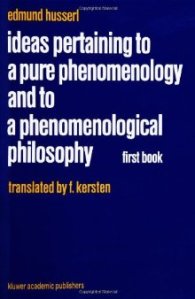
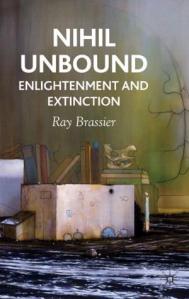

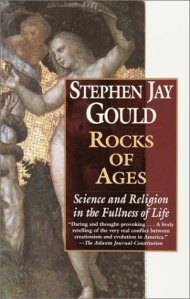

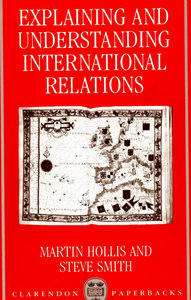
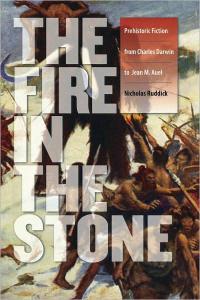

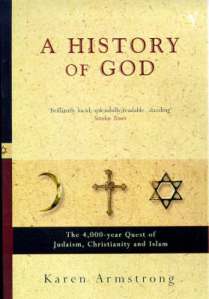
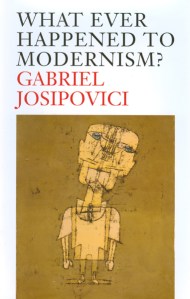

Have you read Alan Moore’s Fossis Angels? His take on magic/imagination/art and its preserve and remove from analysis by the scientific and religious/occult realms echoes, to my mind, some of what you are arguing: that meaning and imagination are non-rational and perhaps should be enjoyed as such. Great theatre that speaks directly to our minds and hearts.
Fossil Angels part one here: http://glycon.livejournal.com/13888.html
and part two here: http://glycon.livejournal.com/14307.html
LikeLike
[…] Absence of Mind (2010) By Marilynne Robinson [Ruthless Culture] : Oh dear. Ostensibly an attempt to critique the reductionist theories of mind swimming about in […]
LikeLike
[…] A piece that draws heavily upon Harrison exploration of gardening as a spiritual metaphor. […]
LikeLike
[…] secondary theoretical currency could be called ‘Understanding’ and it is, as I suggested in my piece about Marilynne Robinson’s shoddily argued Absence of Mind (2010) the true currency of art, […]
LikeLike